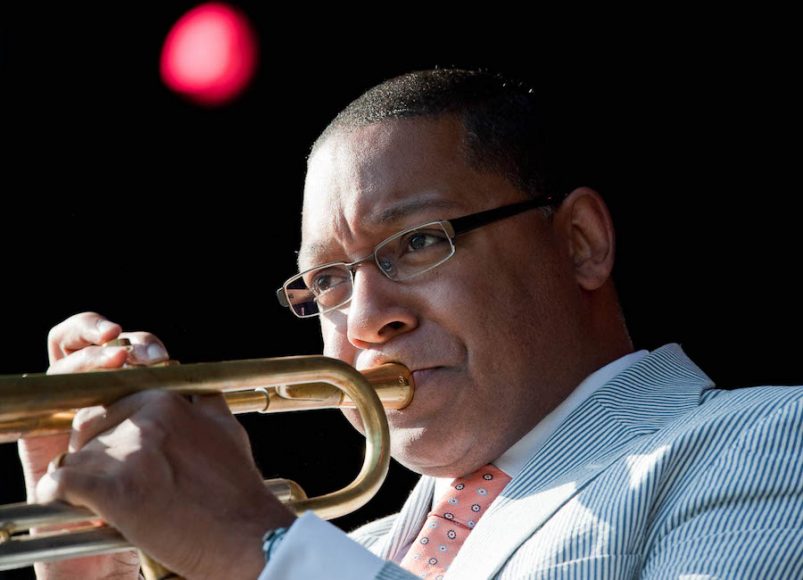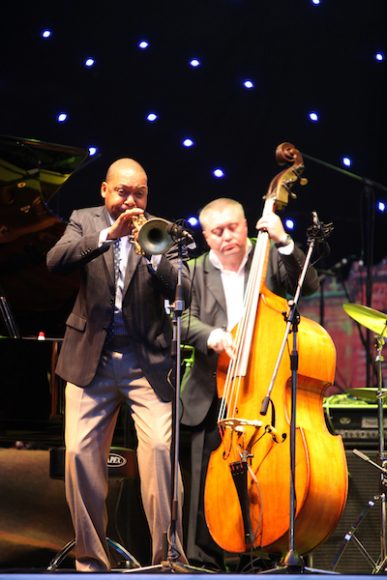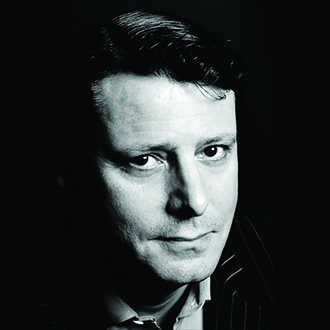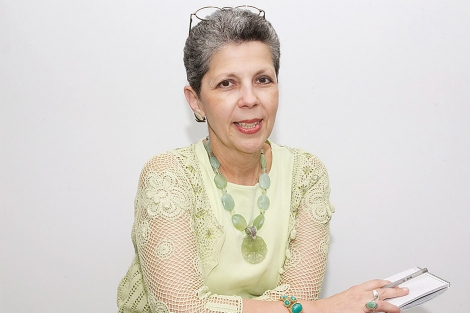The greatest virtuoso trumpeter of the age, Wynton Marsalis, is clearly a busy man. But when we spoke by phone a couple of months ago and I apologized for interrupting his schedule, Marsalis — who is also a composer, teacher, humanitarian and philanthropist, as well as the artistic director of Jazz at Lincoln Center — told me in that rich drawl of his, which seems to blend smooth Belgian chocolate with the finest Italian silk, “Take all the time you need.” I was inclined to believe he meant it.
Our call, which took place in early March, before the COVID-19 pandemic struck in earnest, was supposed to be a precursor to this summer’s 75th Caramoor season, for which at the Opening Night Gala on June 20, Marsalis was due to perform with the Jazz at Lincoln Center Orchestra. The orchestra was also set to be playing at Caramoor’s all-day Jazz Festival on July 18.
Now as we go to press, the virus has already sadly claimed Marsalis’ celebrated, jazz pianist father, Ellis Marsalis Jr., and Caramoor’s summer season — along with myriad other summer festivals and events across the region, across the nation — has had to retool. (See sidebar.) Marsalis will, however, return next season.
With its array of concerts, daylong festivals and new Concerts on the Lawn series, the Caramoor Center for Music and the Arts in Katonah and its acclaimed international summer festival have been mainstays of the metro area for 74 years. The center also has also made a host of campus-wide improvements, the culmination of its successful “Inspire!” capital campaign.
But even with June off the agenda, and Caramoor itself shuttered for now, all may not be lost. Where performances are canceled, they will be rescheduled, and Caramoor will be working with artists and staff to livestream other concerts where possible.
Meanwhile, Caramoor remains close to Wynton Marsalis’s heart. Indeed, if he has legions of fans worldwide, and he does, he declares himself a special fan of Caramoor. He loves the atmosphere and enjoys working with a close-knit team. The community spirit is also far more prevalent at Caramoor, he says, than at a great many festivals he plays. “We have tried to program with integrity and give people music they want to hear.” He stresses “integrity” in jazz, referencing the New Orleans Jazz & Heritage Festival, on which he worked from the first one in 1970, but which he says became so big and sprawling that it eventually lost its way. “Caramoor has the feeling of neighborhood,” he says. “It’s a real jazz festival.”
And he knows a jazz festival when he sees one. Near the start of his career, in 1981, he hit the road, performing more than 120 concerts every year for 15 consecutive years, and he still follows a punishing concert schedule, both nationally and internationally.
Where does he especially enjoy traveling to? “I love to play wherever I know people.” This covers a lot of ground, of course, since he knows people everywhere. He regularly plays in South Africa, in Russia (with his friend Igor Butman, the Russian jazz saxophonist) and, naturally, in Brazil, the country where jazz in one form or another is virtually a way of life. He is drawn to Spain, too, and has a weakness for Vienna. Marsalis is also crazy for Marseille, France — where he has been going every year for 30 years (for the Jazz Festival.) He plays the Barbican in London — another city where he has a large number of friends — once a year and, oh, he holds Japan in awe. “I would love to be Japanese in another life,” he tells me.
But performing, to mangle a music metaphor, is only one string to Marsalis’ bow. As a recording artist, his records have sold over seven million copies, including three gold records, and he is a prolific and inventive composer, contributing a violin concerto and four symphonies to the classical music canon alone. This is unparalleled for a contemporary jazz musician. Add to this, music for ballet, popular song, new jazz and orchestral arrangements across virtually all musical genres, and you have still barely scratched the surface. His work, “Blood on the Fields,” became the first jazz composition to be awarded the coveted Pulitzer Prize in Music in 1997 and he is the winner of nine Grammy Awards. He has honorary degrees from 38 universities — and counting.
He is revered as a teacher and educator. I ask him about the challenges of teaching in the era of the iPhone, of shortened attention spans and the need for instant gratification — the study of music notoriously being an exercise in extreme patience and diligence. “Being a teacher is like being a basketball coach, and coaching is very difficult if people don’t want to go to your practice ,” he observes. “And there’s a whole range of music that’s commercial, that’s designed to be on the lowest possible level,” often, he says, with a dangerous message. “Therefore, as a teacher, you have to choose the best, present the very best music to your students.” (I’m reminded of how a schoolteacher-friend once put it to me: “Dumbing ‘up,’ he said, “is as easy as dumbing down.”) Marsalis finds it better to present “quality” to his students, rather than to attack genres or styles as not being good, or even being subversive.
While he doesn’t teach daily classes at Juilliard, where he is director of Juilliard Jazz, he is heavily involved with programing. “We begin by recognizing that there is consciousness behind music. It’s as real as one’s own voice. But sound is also mystical, it’s spiritual.” He talks about 30 different levels of listening and describes how he likes to “lift students up the listening ladder. We educate ourselves in music just as we do in a language. The more we start to hear things, the more we start to understand them.” And he sees music — all kinds of music, ritualistic music, repetitious music, teenage music, lullabies, love songs — as “building blocks, ones we are able to apply to different aspects of our lives.”
If jazz is all about letting your hair down, how does the great jazzman himself relax?
“Nah, I’m always listening to music,” he responds, dismissing the idea of any personal downtime. “I’m always hearing music.”
The upside to music in the digital age, I ask him?
“It’s brought so much benefit, from bringing music to you instantly to exposure to different kinds of music, to research, to teaching, you name it.” And he likes the idea that he can also recognize talent in students — and prospective students — instantly, at a distance, through video clips or what they post online.
And the downside?
“I can barely think of any downside,” he says, and then pauses. “But there’s a yin and yang to everything.”
For more, visit wyntonmarsalis.org
Caramoor 20/2.0
It was the great 18th-century Irish statesman Edmund Burke who said, “No one ever made a greater mistake than he who did nothing, because he could only do a little.”
With that in mind, Caramoor, the Mediterranean-style center for music and the other arts and an acclaimed summer festival in Katonah, is plunging ahead with a coronavirus-modified season.
“Caramoor’s purpose is to inspire a lifelong love of music in our beautiful setting,” says CEO Jeff Haydon. “Rather than cancel our summer season entirely, Caramoor’s ‘Summer 20/2.0’ provides ways we might still be able to offer opportunities to bring much-needed inspiration to our community.”
Over the course of “Summer 20/2.0,” Caramoor aims to stream seven new performances from the Music Room of the Rosen House, known for its historically eclectic furnishings and intimate acoustics. The video streams will feature such artists as Inon Barnatan, Conor Hanick, Sandbox Percussion, the Calidore String Quartet and Musicians from The Knights in repertoire ranging from Mozart and Tchaikovsky to excerpts from Shirley Graham Du Bois’ opera “Tom-Tom,” a children’s program, and the world premieres of new works by Christopher Cerrone and Anna Clyne. Each streamed performance will be accompanied by additional content, including talks with the artists and closer looks at the Westchester house and grounds (July 2—Aug 6).
Later in the summer, Caramoor plans to host four live, public, open-air concerts on Friends Field. Suitable for small, well-spaced audiences, these will feature multiple genres — American roots, mariachi, jazz and swing (Saturdays, July 18—Aug 8, with rain dates on the following Sundays).
In addition, Caramoor hopes to open its outdoor spaces to the public, beginning in mid-July. Visitors will be able to enjoy its landscaped Italianate and woodland gardens, interacting with nature, architecture and history on socially distant picnics and walks, as well as exploring the site-specific sound art installations of Sonic Innovations (Thursdays through Sundays, beginning July 16).
Finally, a variety of outdoor pop-up events may also be added to the lineup, with appearances around the grounds by artists, including a brass ensemble from Orchestra of St. Luke’s, Caramoor’s orchestra-in-residence for the past 41 years.
For more, visit caramoor.org.
— Georgette Gouveia






